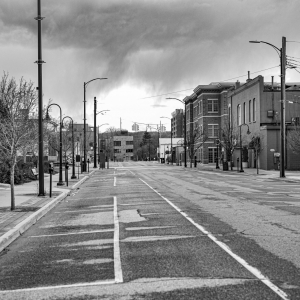The Stream, April 17, 2020: Drought in U.S. Southwest Among Worst “Megadroughts” in Past 1,200 Years, Study Finds
The Global Rundown
Drought in the southwest United States is on par with the worst drought experienced in the region over the past 1,200 years, a new study says. Disaster experts warn that several Asian nations will likely be forced to combat both extreme water and the Covid-19 pandemic in coming months. Deforestation and climate change devastate waterways on the East African island of Comoros. Concerns about the spread of Covid-19 slow aid delivery to cyclone-hit Pacific communities. The coronavirus threatens millions of people living in Middle East conflict zones, the Red Cross warns.
“Water projects need to function, pumping stations just can’t stop functioning. Millions of Syrians are totally dependent on food distribution, you can’t stop this. It is true in Syria but it’s true in many countries affected by conflict, you need to work on both sides – the COVID emergency and the humanitarian assistance.” —Fabrizio Carboni, Red Cross director for the Near and Middle East, in reference to the dire situation threatening conflict zones in the Middle East. Millions of people in hotspots such as Syria and Yemen already lack basics like food, water, and adequate healthcare. As the coronavirus pandemic unfolds, aid groups fear that both the disease itself and the accompanying socioeconomic upheaval could be devastating for these vulnerable populations. Reuters
Latest WaterNews from Circle of Blue
Covid-19 + Water: Live Blog — The volume of Covid-19 news can be overwhelming. We’ve started a live blog, updated throughout the day, to help you sort through it. It’s a library for how water, sanitation, and hygiene connect to the pandemic, both in the US and globally.
Water Contamination Risks Lurk in Plumbing of Idled Buildings — Stagnant water is a breeding ground for bacteria. Before reopening shuttered buildings, the internal water systems need to be investigated, plumbing experts say.
By The Numbers
40 Permanent rivers lost from the East African island of Comoros in the last 50 years due to deforestation and climate change. In the past several decades, large swathes of the island have been cleared to accommodate farmland and population growth. The disruption to the island’s ecosystem, alongside warming temperatures and shifting weather patterns, has led to a severe depletion of the island’s waterways. The New York Times
Science, Studies, and Reports
A new study led by researchers at Columbia University finds that the ongoing drought in the southwestern United States is among the worst regional dry spells in the past 1,200 years. The study, which was published in the journal Science, used tree growth data to model drought conditions each year back to 800 A.D. In total, scientists found four periods of “megadrought” where soil moisture content appeared to be far below average for more than two decades. Only one of these dry spells, in the 1500s, had lower soil moisture than the current drought, which began in 2000. The researchers say the dry spell is undoubtedly tied to the global warming process. The New York Times
On the Radar
Cyclone Harold pummeled Vanuatu and other Pacific islands last week, and many hard-hit areas have yet to receive aid due to coronavirus concerns. In Vanuatu, a large shipment of supplies arrived from Australia, but the shipment will need to be quarantined for several days to minimize the risk of Covid-19 transmission. Cyclone Harold killed dozens across the Pacific and devastated entire villages. The Guardian
Disaster experts convened this week in a webinar organized by the United Nations Office for Disaster Risk Reduction. Experts noted the dual threats of the coronavirus and extreme weather events facing many Asian countries. Cyclone season, sweltering temperatures, and dry conditions are among the severe conditions facing many Asian nations. Reuters
Kayla Ritter is a recent graduate of Michigan State University, where she studied International Relations and Teaching English to Speakers of Other Languages. She is currently based in Manton, Michigan. Kayla enjoys running, writing, and traveling. Contact Kayla Ritter






Leave a Reply
Want to join the discussion?Feel free to contribute!